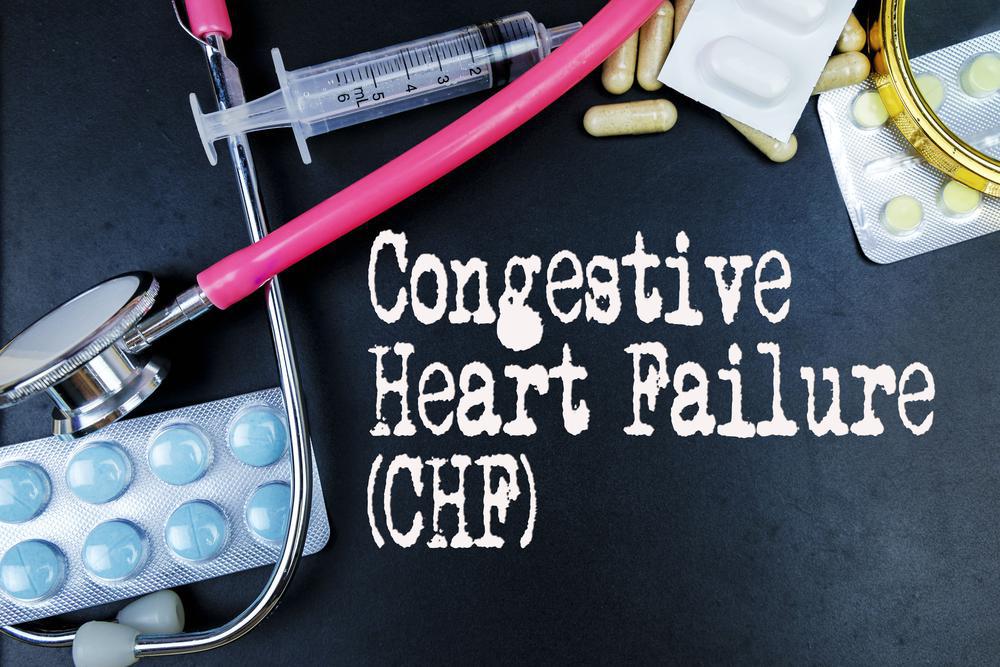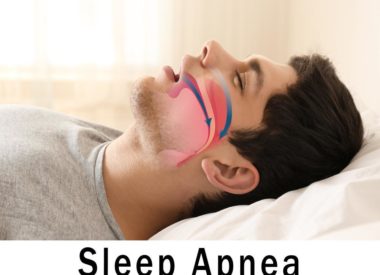Congestive Heart Failure (CHF) and Central Sleep Apnea (CSA)
You probably know how annoying snoring can be, especially when you’re the one having to listen to it. However, if you’re the one snoring and it causes you to repeatedly stop breathing for several seconds at a time, it can also result in cardiovascular problems (heart) that could potentially threaten your life. In fact, there has been a strong link between cardiovascular disease and hypertension with sleep apnea, therefore it’s important that you understand this.
In the United States alone, there are approximately 5.7 million people who have congestive heart failure. This condition is where your heart is unable to pump the required amount of blood your body needs. In some instances, your heart isn’t able to pump your blood with enough force to the rest of your body. In other instances, you’re not getting enough blood to fill your heart. Some individuals experience both these issues.
Some common symptoms and signs of heart failure include:
- Trouble breathing or shortness of breath
- Swelling or fluid buildup in your feet, ankles, neck veins, abdomen and legs
- Tiredness or fatigue
- Persistent wheezing or coughing
- Heart rate increase
- Impaired or confused thinking
- Nausea, lack of appetite
These symptoms are typically caused by your body building up fluid. When you begin experiencing these symptoms, things like climbing stairs or other routine physical activities can leave you feeling fatigued (tired) and short of breath.
Additionally, congestive heart failure can even lead to central sleep apnea if left untreated. Up to half of individuals who have heart failure ends up with central sleep apnea.
What is Central Sleep Apnea (CSA)?
CSA is a sleep disorder that occurs during sleep when your brain isn’t signaling your muscles to breathe. Your breathing becomes disordered at night. With the progression of heart failure, your apnea can become so acute (severe), you awaken in a panic during the night because you can’t breathe. CSA is not the same as obstructive sleep apnea (OSA) where upper airway obstruction makes it difficult to breathe normally. It is less common than OSA as well.
Common symptoms and signs of CSA include:
- Abnormal breathing patterns or moments of stopped breathing during sleep
- Being woken abruptly that is often followed with shortness of breath
- Insomnia or difficulty staying asleep
- Shortness of breath where sitting up relieves it
- Nighttime chest pain
- Hypersomnia or daytime sleepiness that’s excessive
- Morning headaches
- Snoring
- Difficulty concentrating
- Mood changes
Unlike obstructive sleep apnea, CSA is characterized by repeated interruption in your breathing while you sleep due to a lack of drive or effort to breathe. Other conditions can cause central sleep apnea too, such as congestive heart failure. While OSA can be a causal factor of congestive heart failure, central sleep apnea can also be a response to the heart failure.
Mild sleep apnea afflicts one in five adults affecting more men than women, according to the American Heart Association. CSA is far less prevalent than OSA.
Although obesity has been documented as causing OSA, there still hasn’t been any research showing that it can cause central sleep apnea. Research is still being conducted, however.
While it has been documented that Obesity can and does cause obstructive sleep apnea, research has still not found any connection between central sleep apnea and obesity. However, the sleep deprivation you experience due to sleep apnea can contribute to obesity and obesity increases your risk for heart disease in a huge way, as you may already know.
The Link Between Congestive Heart Failure and Central Sleep Apnea
When a disorder such as CSA leads to congestive heart failure, the disorder is secondary to your heart not being able to pump your blood adequately. When your blood isn’t being adequately pumped, the consequence is that your blood returns to your heart causing an increase in pressure in your veins and lungs of your body. This increased pressure causes some of the blood’s fluid to seep into your lung or surrounding tissues which makes it harder for you to breathe.
Up to 70 percent of congestive heart failure patients end up developing a breathing disorder related to sleep. These breathing stoppages they experience in the nighttime exposes their heart to lower blood-oxygen levels which results in their heart to not properly function and can increase their risk of premature death.
Of the congestive heart failure patients who end up developing sleep breathing disruptions later on, only a small percentage of these patients experience the breathing stoppages from airway obstructions seen in obstructive sleep apnea. Most of these CHF patients develop CSA instead.
Consequences of CHF and Central Sleep Apnea
When your sleep is disrupted, your blood pressure rises. This is because when you stop breathing, your body gets lower oxygen levels which arouse your receptors that alert your brain. Your brain then responds by sending signals through your nervous system basically telling your blood vessels to increase the oxygen flow to your brain and heart by ‘tightening up.’
These lower levels of oxygen during the night can also affect various mechanisms during the day, even when you are breathing properly and are awake.
Central apneas while you sleep can negatively impact you if you already have congestive heart failure. The hypoxia can promote ischemia, worsen your blood pressure and even make your heart failure condition worse by causing arrhythmia (irregular heartbeats). Because you are getting poor quality of sleep, you are likely sleepy or tired. In addition, when you have CHF, hypoxia can contribute to an overflow of free fatty acids, according to a study, that can cause vascular dysfunction, insulin resistance, heart muscle dysfunction and hyperlipidemia.
The good news, however, is that when you get your CHF and central sleep apnea treated, it significantly improves your heart failure condition. It’s essential that you strengthen your lungs and heart with routine physical activity. However, congestive heart failure can limit the types and amount of activities you do.
Consult with your physician to learn physical activities that are safe for you. Congestive heart failure and central sleep apnea can also be treated with different medications and therapy. Your doctor may also work with you for coming up with a heart-healthy eating plan to ensure you’re not putting any foods in your system that can contribute to heart problems or make them worse. If you find out you have central sleep apnea, it’s vital that you seek treatment right away to either prevent CHF or keep it from worsening.



